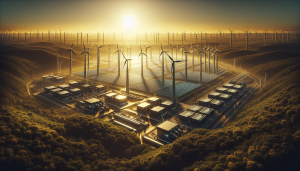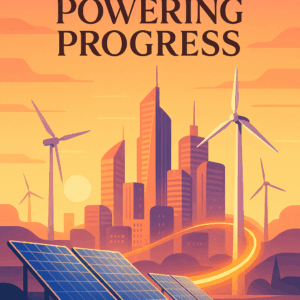Title: Navigating the Future: Transformative Strategies in the Modern Energy Business Landscape
The Dynamic Evolution of the Energy Sector
In the rapidly changing world of global commerce, the energy business stands at a critical crossroads of innovation, sustainability, and technological transformation. As industries worldwide grapple with unprecedented challenges and opportunities, understanding the nuanced landscape of energy becomes more crucial than ever.
The energy business is no longer just about extracting and distributing traditional resources. It has metamorphosed into a complex ecosystem of technological innovation, environmental responsibility, and strategic vision. Today’s energy leaders are not merely managers of resources but architects of a sustainable future.
Technological Disruption: Reshaping Energy Paradigms
Emerging technologies are fundamentally restructuring how we conceptualize and engage with energy systems. Artificial intelligence, blockchain, and advanced data analytics are revolutionizing everything from resource exploration to distribution networks. Companies that embrace these technological innovations are positioning themselves at the forefront of the industry.
Smart grid technologies, for instance, are transforming traditional energy infrastructure. These intelligent networks enable real-time monitoring, predictive maintenance, and more efficient energy distribution. By integrating advanced sensors and communication technologies, energy companies can optimize performance, reduce waste, and enhance overall system reliability.
“The future of the energy business lies not in preserving old models, but in courageously reimagining them,” notes Dr. Elena Rodriguez, a renowned energy policy expert.
Sustainability: The New Business Imperative
Sustainability has transitioned from a peripheral consideration to a core strategic priority in the energy business. Companies are increasingly recognizing that environmental responsibility is not just an ethical choice but a fundamental business strategy.
Renewable energy sources like solar, wind, and hydrogen are no longer alternative options but mainstream solutions. The dramatic reduction in renewable technology costs has made these energy sources increasingly competitive with traditional fossil fuels. Forward-thinking organizations are investing heavily in research and development to accelerate this transition.
Moreover, investors and consumers are demanding greater transparency and commitment to sustainable practices. Companies that demonstrate genuine environmental stewardship are attracting more capital and building stronger brand reputations.

Strategic Adaptability: Navigating Uncertainty
The energy business operates in an inherently volatile environment. Geopolitical tensions, regulatory changes, and technological disruptions create a complex landscape that requires exceptional strategic agility.
Successful energy companies are developing robust, flexible business models that can quickly adapt to changing market conditions. This involves diversifying energy portfolios, investing in multiple technology streams, and maintaining a culture of continuous learning and innovation.
Risk management has become increasingly sophisticated, with advanced predictive modeling and scenario planning enabling more informed decision-making. Companies are leveraging big data and machine learning to anticipate market shifts and develop proactive strategies.
Human Capital: The Critical Differentiator
In an era of technological transformation, human expertise remains the most valuable asset in the energy business. Organizations are investing heavily in talent development, creating environments that attract and retain top-tier professionals who can drive innovation.
Interdisciplinary skills are becoming increasingly important. The modern energy professional needs to understand not just technical aspects but also possess skills in data analysis, environmental policy, and strategic communication.
Leadership in the energy sector now requires a holistic approach that balances technical expertise with emotional intelligence, strategic thinking, and a deep commitment to sustainable development.
Global Collaboration and Interconnected Systems
The energy business is increasingly characterized by global interconnectedness. International partnerships, cross-border investments, and collaborative research initiatives are becoming standard practice.
Emerging markets are playing an increasingly significant role in global energy dynamics. Countries like India and China are not just consumers but major innovators in renewable energy technologies. This shift is creating new opportunities for global collaboration and knowledge exchange.
Looking Ahead: Embracing Transformative Potential
The energy business stands at an exciting inflection point. The convergence of technological innovation, sustainability imperatives, and changing global dynamics presents unprecedented opportunities for visionary organizations.
Success in this environment will require more than traditional business acumen. It demands a holistic approach that integrates technological innovation, environmental stewardship, strategic flexibility, and a deep commitment to creating value beyond immediate financial returns.
For entrepreneurs, professionals, and leaders in the energy sector, the message is clear: embrace change, invest in continuous learning, and remain committed to creating sustainable, innovative solutions that can transform our global energy landscape.
The journey ahead is complex, challenging, and immensely exciting. Those who approach it with curiosity, courage, and a collaborative spirit will not just survive but thrive in the evolving energy business ecosystem.



